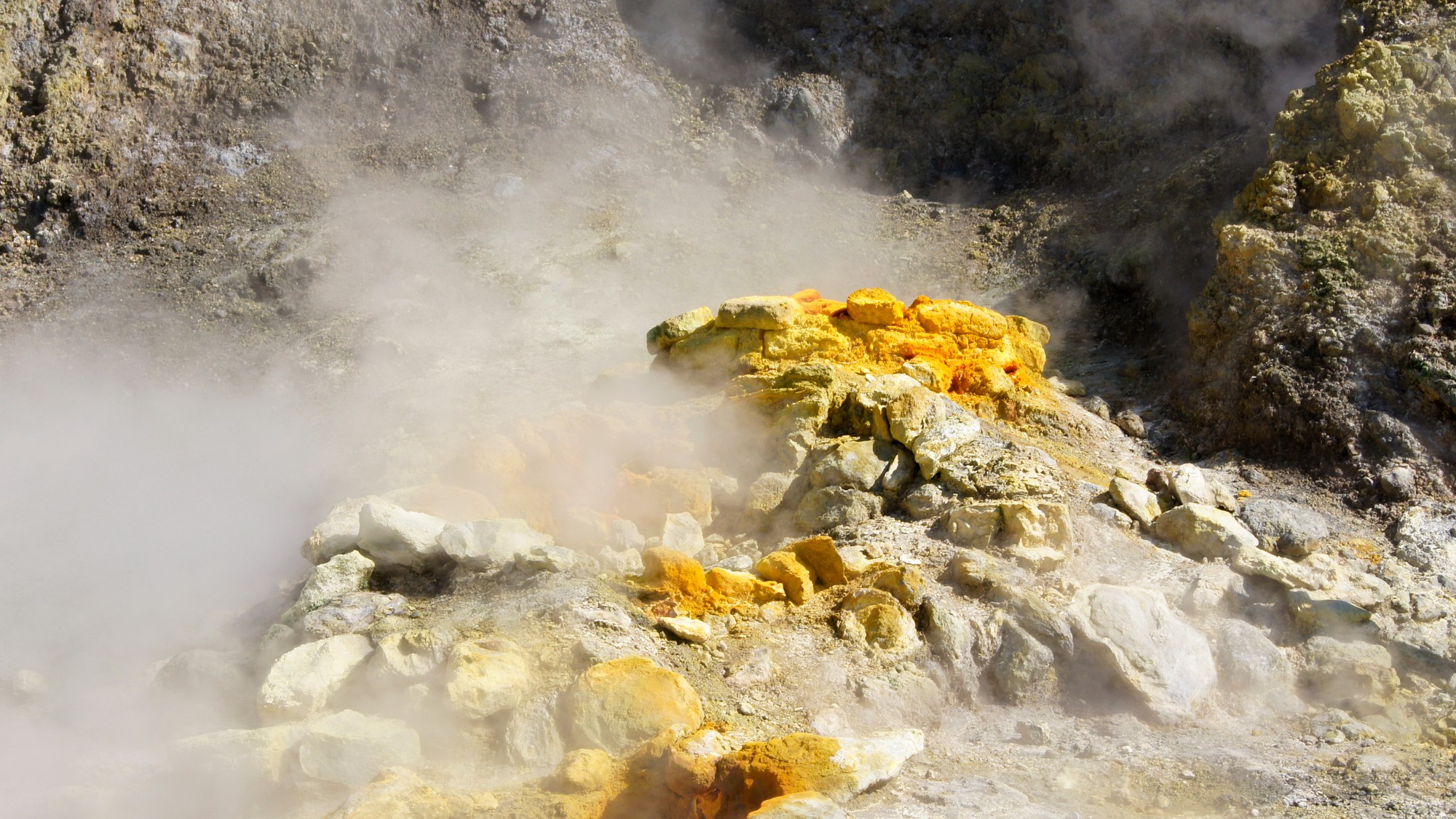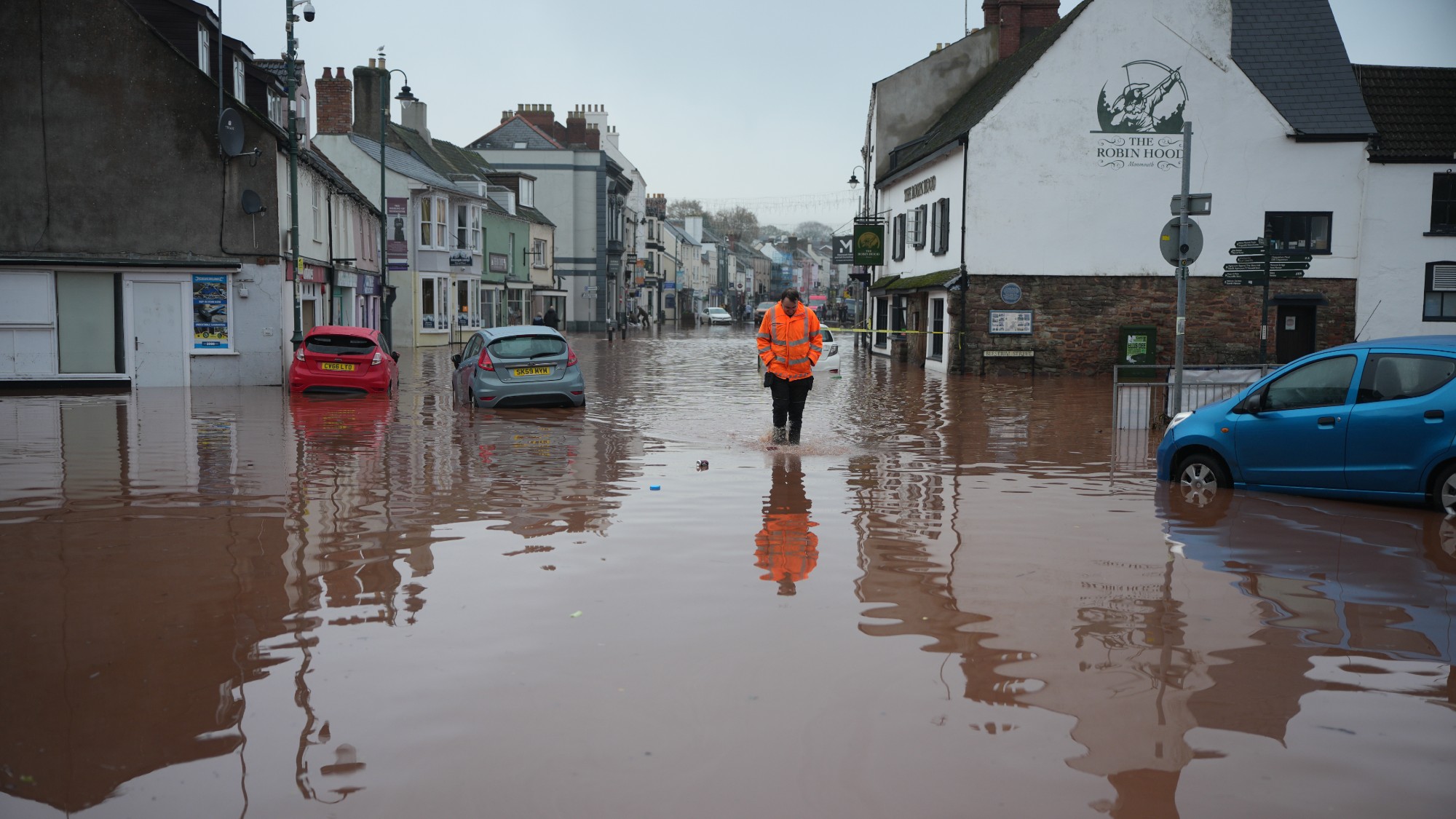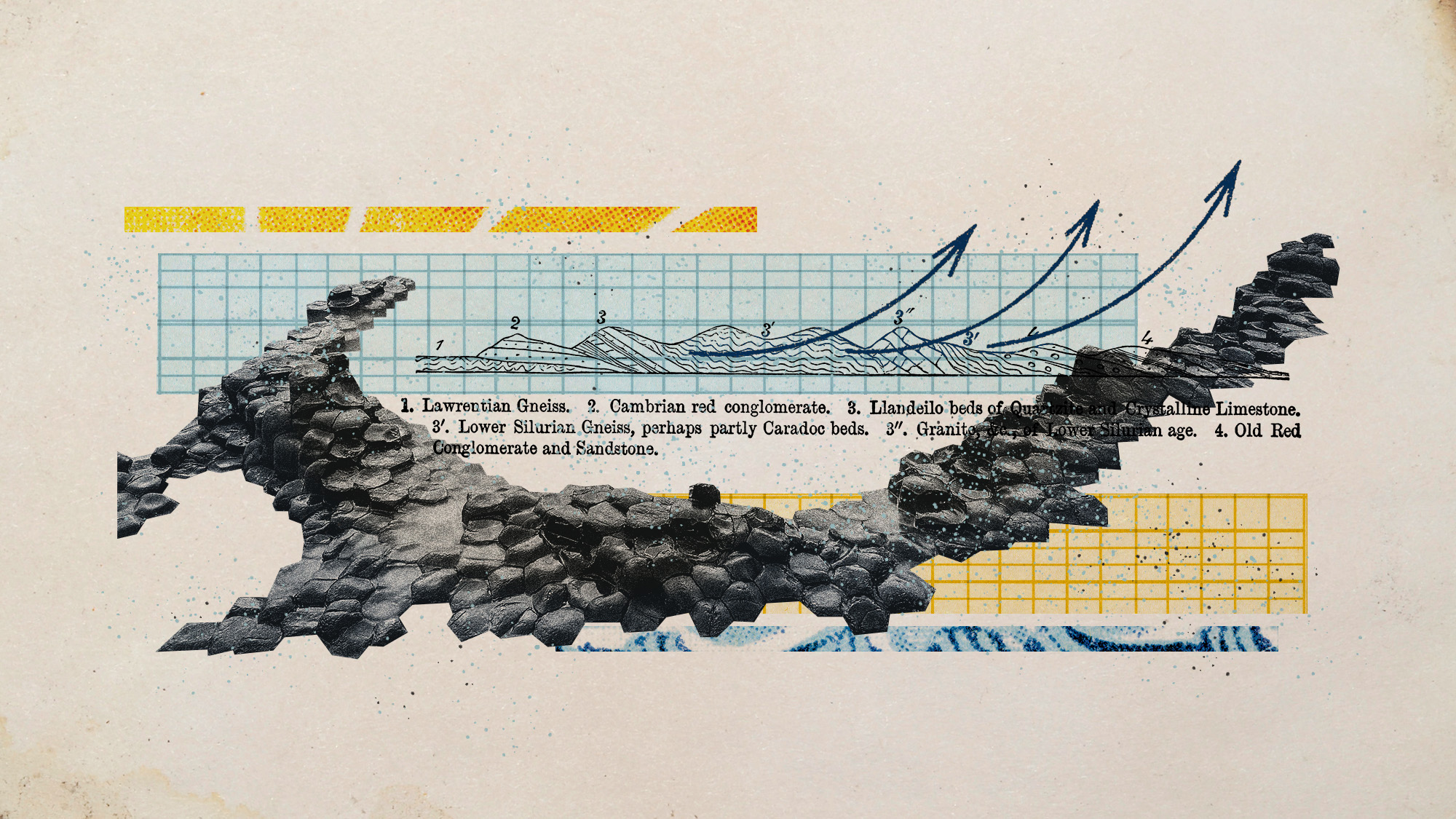Scientists have their eyes on 2 supervolcanoes
'The probability of a catastrophic eruption is low but not nil'


A free daily email with the biggest news stories of the day – and the best features from TheWeek.com
You are now subscribed
Your newsletter sign-up was successful
Beneath the Earth’s surface are ticking time bombs. Two supervolcanoes, located in Italy and California, have long been dormant, but have been stirring as earthquakes in the region become more frequent. While experts say there is no immediate danger of eruption, “seismic unrest” could be a sign that a “volcano is waking up,” NBC News reported. A supervolcano is a “rare but unofficial label given to those that have produced the most intense eruptions in Earth’s history,” said The Washington Post.
Where are the supervolcanoes?
The first supervolcano, Campi Flegrei, is located in Pozzuoli, Italy, near Naples. The region has experienced over 2,500 earthquakes in just the past three months. “The frequent earthquakes are part of a phenomenon called bradyseism, the gradual rising or falling of a part of the earth’s surface caused by activity inside a volcano,” The Wall Street Journal explained. Campi Flegrei last erupted in the 1500s when it wiped out an entire village and formed a volcanic cone now called Mount Nuovo. Today, “the 80-square-mile depression is home to more than a dozen conical volcanoes, several crater lakes — and half a million residents,” the Journal continued. “Another 800,000 people live just outside the depression.”
The second supervolcano is the Long Valley Caldera in eastern California, which last erupted approximately 100,000 years ago. In the 1970s, “a swarm of earthquakes began to emanate from the caldera,” Science Alert reported. However, scientists are less concerned about this eruption, because data shows the magma beneath is actually cooling. “That doesn’t imply that you can’t have smaller eruptions,” Ettore Biondi, a research scientist in the division of geological and planetary sciences at the California Institute of Technology, told NBC News. “But from a supervolcanic eruption perspective, I think as of now we are on the safe side.”
The Week
Escape your echo chamber. Get the facts behind the news, plus analysis from multiple perspectives.

Sign up for The Week's Free Newsletters
From our morning news briefing to a weekly Good News Newsletter, get the best of The Week delivered directly to your inbox.
From our morning news briefing to a weekly Good News Newsletter, get the best of The Week delivered directly to your inbox.
Should we be worried?
Experts say the supervolcano label is misleading. “When a volcano is called a supervolcano, what we really mean is it had a super eruption once, at least, in the past,” Christopher Kilburn, a volcanologist at University College London, told the Post. “But that doesn’t mean that it’s going to have other super eruptions in the future. … Very, very, very large eruptions are much, much rarer.”
There are approximately 20 supervolcanoes in the world, one of the most famous being Yellowstone. Today, the supervolcano is a hot tourist attraction, despite seeing frequent earthquakes. “We have to spend a lot of time on the volcanic system, monitoring it to understand what’s normal at that volcano, and then be able to recognize when something becomes abnormal,” Michael Poland, a geophysicist at the U.S. Geological Survey, told NBC News.
“In Campi Flegrei, like in Yellowstone and the world’s other supervolcanoes, the probability of a catastrophic eruption is low but not nil,” said Alessandro Iannace, a geology professor at the University of Naples Federico II to the Journal. “The difference is that in Yellowstone, if you think the eruption is coming, you can send the tourists home and close the park for four years.” Instead, preparing for the worst-case scenario is a better course of action. “Volcanoes are sort of like people — they all have their own personality,” Poland said. “A big part of volcanology and monitoring active volcanoes is getting to understand the personality of the specific volcanoes that you’re interested in. And some volcanoes are noisier than others.”
A free daily email with the biggest news stories of the day – and the best features from TheWeek.com
Devika Rao has worked as a staff writer at The Week since 2022, covering science, the environment, climate and business. She previously worked as a policy associate for a nonprofit organization advocating for environmental action from a business perspective.
-
 Earth is rapidly approaching a ‘hothouse’ trajectory of warming
Earth is rapidly approaching a ‘hothouse’ trajectory of warmingThe explainer It may become impossible to fix
-
 The environmental cost of GLP-1s
The environmental cost of GLP-1sThe explainer Producing the drugs is a dirty process
-
 Why scientists want to create self-fertilizing crops
Why scientists want to create self-fertilizing cropsUnder the radar Nutrients without the negatives
-
 ‘Jumping genes’: how polar bears are rewiring their DNA to survive the warming Arctic
‘Jumping genes’: how polar bears are rewiring their DNA to survive the warming ArcticUnder the radar The species is adapting to warmer temperatures
-
 How will climate change affect the UK?
How will climate change affect the UK?The Explainer Met Office projections show the UK getting substantially warmer and wetter – with more extreme weather events
-
 The Southern Ocean is holding in a ‘burp’
The Southern Ocean is holding in a ‘burp’Under the radar The heat from the past can affect the future
-
 Builders return to the stone age
Builders return to the stone ageUnder the Radar With brick building becoming ‘increasingly unsustainable’, could a reversion to stone be the future?
-
 Scientists want to use enhanced rock weathering to cool the Earth
Scientists want to use enhanced rock weathering to cool the EarthUnder the radar Rock dust could trap atmospheric carbon


